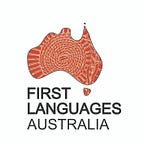Can’t keep a strong woman down
By ABC Open Producer Jacqueline Wright for ABC Mother Tongue, 7 Jul 2016.
I first met Purtungana when I was working at Pundulmurra College in South Hedland as a lecturer in the Indigenous Australian Language Workers Program. She was a keen student, often the first to arrive and the last to leave. As I sat with her, working steadily through learning outcomes and assessments, I realised that I was fast becoming the student and she, the teacher.
Nancy Bangu is the name missionaries gave Purtungana. She is from Bidyadanga, a vibrant Aboriginal community 180 kms south of Broome. It sits three-quarters up a very long stretch of white sand known as 80 Mile Beach.
Bidyadanga started off as ration station, a place where displaced Aboriginal people from the region could pick up food rations and supplies issued by the government. It was run by Pallottine missionaries who named it La Grange
Bidyadanga (Emu’s watering hole) is nestled in the heart of Karajarri country, but it’s also home to four other language groups; Nyangumarta, Mangala, Yulparija and Juwaliny. Juwaliny is Nancy’s language. Nancy’s Aboriginal name is Purtungana.
The last few years has been challenging for Purtungana. She has end-stage renal disease. Purtungana was on dialysis and was sent to Perth for sepsis which is an infection in the blood. While she was in the intensive care unit, for three and a half weeks, the blood flow to her hands and feet was compromised and subsequently caused gangrene. Both legs were amputated at the knee, one hand, at the forearm, and a number of digits on her remaining hand.
When Purtungana came back from Perth to take up residency at the Germanus Kent Hostel, an aged care facility in Broome, it was suggested that she was coming back for end-of-life care and that dialysis would finish.
Palliative nurse, Charlotte Coulson, from the Broome Dialysis centre, cared for Purtungana when she got back from Perth. “She was a very, very weak lady at that point,” Charlotte says.
“I asked her the question, ‘Do you want to continue dialysis or do you want to stop now and she said, ‘No, I want to continue,’ so we made it happen.”
Germanus Kent is not home for Purtungana but she’s happier there because, as she says, “I’m closer to family and close to country.”
“I wasn’t myself when I got to the Germanus Kent…I left my family and I was lying down here and I thought no-one’s coming to visit me and then I thought, ‘No don’t think like that, go out and speak to those old people, go and meet the other people at the centre, speak to them, talk to them about how you’re feeling,’”she says.
“I was going to stand up and be strong…get up and fight for my health…go back to my community. I want to be able to speak to my mob, keep going .”
With this changed mind-set and help from staff at the Broome hospital, dialysis unit and hostel, Purtungana has got herself back on track. Doing exercises, eating well, talking to and meeting people contributed to her recovery. Thoughts of her large extended family also gave her the strength to battle her dilapidating illness and maintain a quality of life that often eludes patients with end-stage renal disease.
According to Charlotte, Purtungana had terrible disabilities, secondary to the gangrene which she was able to overcome.
“She is an absolute inspiration. She has such strength of character and belief in making herself well,” she said.
“She’s made our job easy because there is nothing she won’t do…to make herself better. She has an effect on everyone around her.”
Purtungana understands five indigenous languages and acts as an interpreter for other residents from her region who live in the aged care facility for whom English is not their first language. Purtungana started teaching at Bidyadanga public school in 1975. Her passion is teaching language and culture to her students.
She was able to hang onto her language despite spending most of her growing years living in a dormitory while attending the La Grange mission school.
“We weren’t allowed to speak language in the dormitory or school grounds but I didn’t care, I spoke my language anyway,” she said.
“I grew up with that language, the old people were around us all the time,” she says. “I feel really proud to speak my own language.”
She’s passionate about children learning to not only to speak their Aboriginal language, but also to read and write it. Purtungana worked closely with one of the Pallottine priests, Father (Japulu) McKelson, a self-taught linguist, to translate Catholic Mass into her own language, Juwaliny. Now a qualified language worker herself, she learned to read and write her own language with an orthography created by linguists in the 60s.
Purtungana came to art later on in life. “When I was growing up at school, I didn’t like art,” she said.
Now she’s also a talented artist whose paintings have sold all around the world. Her artwork captures her grandfather’s country, in the Great Sandy Desert, south of Fitzroy Crossing. Sand dunes, waterholes and bush foods feature in her work. And spinifex, lots of spinifex.
“I went out to my grandfather’s country just once, but I kept remembering it at the back of my head — where things are; trees, waterholes, grass, hills and the colours.”
She recently got a new electric wheelchair which she operates with her one remaining hand. This wheelchair has changed Purtungana’s life, “I can do my own things, I can get away,” she chuckles.
Being a solid role model has been part of her agenda. “I have to be strong for my brothers and sisters. For my kids, for my grandkids.”
“When the kids see you get strong, they follow you.”
